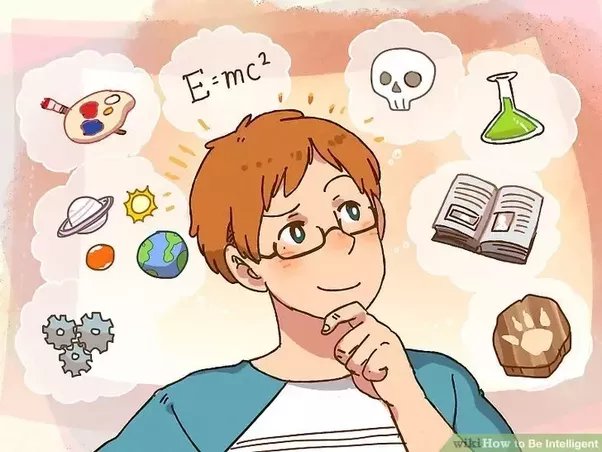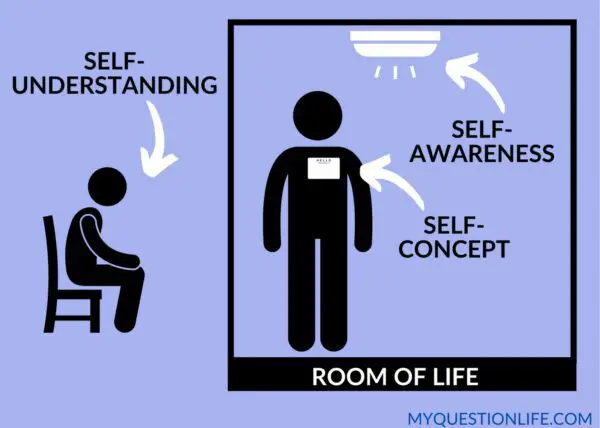Do you ever question your intelligence? Interestingly, according to Cornell University’s findings, those who doubt their smarts might be sharper than they think. In this exploration, we navigate beyond traditional IQ measures. Shakespeare’s insight, “The wise know they’re fools,” aligns with the study’s paradox—bright minds often harbor uncertainties. So, if you find yourself questioning, it could be a sign of hidden brilliance. Join us as we decode the nuances of intelligence, considering unique habits, thoughtful approaches, and an insatiable curiosity. This journey goes beyond self-doubt, unveiling the subtle signs that prove you might be smarter than you believe.
Top signs that prove that you are smarter than you think you are.
Inquisitive Nature: Asking Questions

Forget fact-hoarding, true intelligence craves understanding. It’s the insatiable “why” that ignites minds like da Vinci’s, questioning the world to unlock its mysteries. Every curious itch scratched paves the way for progress, fueling the engine of discovery.
Embracing Mistakes: A Path to Growth
We all make mistakes, but smart individuals use them as opportunities to learn. Intelligence isn’t about getting everything right; it’s about admitting mistakes, reflecting on them, and using that experience to do better next time. This approach fosters continual growth.
Diverse Interests: The Curious Mind
Intelligence isn’t a monothematic show, it’s a vibrant tapestry. A curious mind isn’t confined to a single thread, but weaves together diverse interests. Like a polymath of the past, embracing a spectrum of knowledge strengthens the fabric of understanding.
Problem-Solving Skills: Tackling Challenges
Solving problems is a key aspect of intelligence. If you’re adept at finding solutions and thinking creatively when faced with challenges, it’s a sign of your intelligence. Problem-solving involves critical thinking, creativity, and resourcefulness.
Self-Understanding: Knowing Yourself

Smart individuals have a clear understanding of themselves. Recognizing your strengths and weaknesses, as well as understanding how emotions influence behavior, is crucial for social and emotional intelligence. It’s about making conscious choices based on self-awareness.
Having a Growth Mindset: Embracing Learning
A growth mindset, believing that abilities can be developed through effort and learning, indicates intelligence. Smart individuals always look to learn and grow, challenge themselves, and adapt to new ideas and experiences.
Empathy: Understanding Others
In an interview, Dr. Emily Johnson from the Emotional Intelligence Institute stated, “Empathy, the ability to understand and share others’ feelings, is a key component of emotional intelligence. When you can put yourself in someone else’s shoes, truly comprehend their emotions, and communicate sensitively, it showcases a higher level of intelligence.”
Sense of Humor: Cognitive Flexibility

A good sense of humor is a sign of cognitive flexibility and creativity. If you can find joy in unexpected situations, laugh at yourself, and make others laugh, it demonstrates intelligence. Humor shows an ability to think outside the box.
Love for Learning: Lifelong Curiosity
Having a genuine love for learning is a key trait of intelligence. It reflects a continuous curiosity and enthusiasm for acquiring new knowledge and skills. Learning keeps the mind active and contributes to ongoing personal development.
Curious and Open-Minded Approach: Intellectual Flexibility
Being open-minded and curious is integral to intelligence. If you’re willing to challenge assumptions, explore new ideas, and consider different perspectives, it shows intellectual flexibility. An open mind is a gateway to continuous learning and growth.
In embracing these qualities, you not only showcase intelligence but also contribute to a mindset of constant improvement and understanding. These attributes collectively form a comprehensive picture of intellectual capability, curiosity, and adaptability. For more such posts please visit our Technology section.



